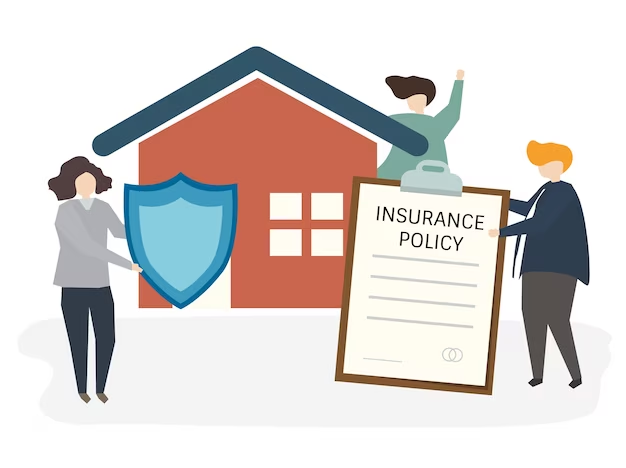Most people think that hiring a property manager is more of an expense when considering “What is the average property management fee for rental properties?”. We are here to tell you that hiring the right company for managing your rental property is not only a long-term asset but also a valuable investment.
What are Property Management Companies?
Property management companies help landlords manage their rental properties for a certain fee in exchange. If you are looking to get in more revenue with less work when it comes to your rental property management, then hiring a property manager is key.
An ideal property management company helps you to keep your rental property well-maintained and occupied, aiming to increase the value of your investment. Hiring a property management company makes delegating tasks and landlord responsibilities much easier while freeing up your valuable time.
A Simple Breakdown of Average Property Management Fees for Rental Properties
The average property management fees for rental properties can be broken down as follows:
Setup Fee
There may be an initial setup or onboarding fee when hiring a property manager. This one-time, standalone fee varies from $250-$500 depending on the company you have hired. This is the cost of setting up your account with the property management company. It may also cover an initial inspection by the company for a cursory property assessment.
Monthly Management Fee
Property managers charge a monthly fee to maintain rental properties. They can generally formulate a fee structure in two primary ways:
Fixed Property Management Fees
A fixed property management fee stays the same, irrespective of the monthly rent. For instance, if your tenant gives you $1400 in one month and $1200 the next month, your property manager will charge you a fixed fee of, say, $150. It will be the same, irrespective of the lower amount of rent collected.
Fixed property management fees can benefit you as a property owner if you collect more rental income every month. The rule of thumb in the property market is to charge an average of $100 for a single-family home, but the costs may fluctuate depending on the market.
A fixed fee is a good idea, as it is relatively hassle-free. But keep in mind that it will give your property manager minimal incentive to collect rent promptly. They might also be less motivated to increase the rental income for your property.
Percentage of Monthly Rent
While calculating the average property management fee for rental properties, it is also essential to consider the percentage of monthly rent form of payment structure. Most property managers and their companies charge a monthly fee between 8% to 12% of the monthly rent collected. So if your tenant is paying $1200 in rent, the property manager’s fee will be $120, based on the set average of 10%.
In this fee structure, you may pay less or more, depending on the monthly rent collected. This is a beneficial setup for the property owner as you pay as much as you get each month.
Rent Due vs. Rent Collected
While setting up the contract with your new property manager, make sure you pay the fee for rent due rather than the rent collected. Otherwise, your property manager will be entitled to a monthly payment even if no rent has been paid.
Maintenance Fee
The average property management fee for rental properties also includes a maintenance fee, usually combined with the monthly management fee. This includes basic maintenance such as leaf removal, emptying garbage, and keeping common areas clean.
Additional Fee for Property Management
Sometimes, your property manager may charge fees that are not included in the monthly property management fees. These costs could include but not be restricted to the following:
Tenant Placement Fee
Your property manager may add a separate fee for placing tenants while drawing up the cost of average property management fees for rental properties. This could also be a flat fee or a percentage of the month’s rent. This fee can include advertisement costs, screening tenants, move-in procedures, and lease agreement preparation.
Eviction Fee
If you wish for your property manager to handle your evictions, you may have to pay additional fees. This can include a fixed amount per eviction plus any costs associated with court proceedings.
Vacancy Fee
Your property manager might stipulate a vacancy fee when they list the costs for the average property management fee for rental properties. This could be a fee per vacant unit or a one-time fee of one month’s rent straight up.
Early Termination Fee
If you wish to end the contract with your property management company before it ends, you might have to pay a termination fee. This fee will depend on the terms and conditions of the contract. You may have to pay one month of additional management fees or be dragged to court for breaching your contract.
Factors that Affect Property Management Fees
When you are looking for the answer to “What is the average property management fee for rental properties?”, it is paramount to understand the importance of the property manager. You need to understand that the cost of property management is based on the amount of work your property manager will need to do to maximize your rental income and keep your property in good condition.
A few determining factors that affect what you might have to pay in terms of property management fees include:
Size of property: How many bedrooms does your property have? What is the square footage? How many units do you want your property manager to manage?
Type of property: Is it a short-term rental or a long-term rental? Is it a single-family home or a multi-family home?
Property condition: Most properties require work and maintenance before renting, older ones more so than new ones. This can affect the average property management fee for rental properties.
Neighborhood rating: Neighborhoods with better ratings attract a higher number of tenants. Neighborhoods with poor ratings can create difficulty in finding tenants.
Market competition: This factor also affects the average property management fee for rental properties. Property management fees in smaller markets are higher due to less competition and fewer options for the landlord.
Visit Us For More Informational Blogs On Property Management.

